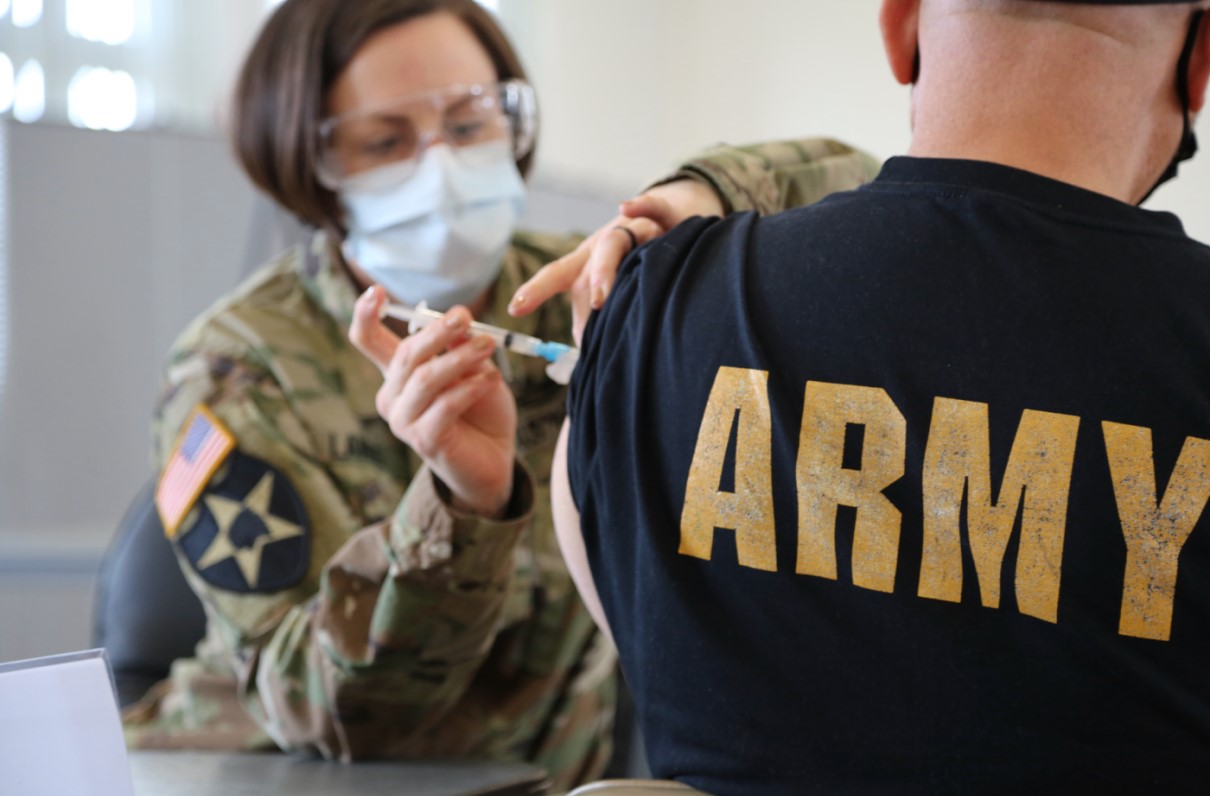Editor’s note: This article by Patricia Kime originally appeared on Military.com, a leading source of news for the military and veteran community.
The White House's proposed $752.9 billion Defense Department budget includes a 5.3% increase for the military health system but contains no new provisions that would transfer any of the cost burden to beneficiaries.
The $54 billion health budget request, which includes $35.6 billion for health care programs, supports the ongoing reorganization of the military health system. The restructuring was launched in 2017 to consolidate management and refocus the system on providing medical treatment for service members.
The proposed $2.7 billion increase from fiscal 2021 would address anticipated cost increases for Tricare, pandemic-related expenses and projected care for service members as they retire.
[RELATED: Here’s Why MOAA Remains Focused on Planned Military Health System Reforms]
Four years ago, the proposed fiscal 2017 budget called for new Tricare fees for all "working-age" retirees -- those who have retired from military service but haven't reached age 65 -- and it altered Tricare's structure into two programs: Tricare Prime and Tricare Select.
Last year, shortly after the DoD announced that 50 military treatment facilities were targeted for downsizing or closure -- a move that affects more than 200,000 beneficiaries -- the budget proposal said more non-uniformed beneficiaries such as family members and retirees would receive health services from civilian doctors and contractors, even if they go to military treatment facilities.
The fiscal 2022 budget makes no similar grand pronouncements or sweeping changes, however.
Instead, the proposal supports the ongoing transformation of the military health system, which calls for grouping military treatment facilities into "markets" with an aim to streamline management, reduce redundancies and resize military medical forces while reinvigorating their focus on service member care.
[RELATED: House Bill Would Enhance Medical, Dental Coverage for Selected Reserve]
The budget request addresses the increased costs for Tricare that are expected with the changes.
According to the DoD, Tricare cost increases were seen in fiscal 2019 and "pre-COVID fiscal 2020" as the result of patient shifts to Tricare from military hospitals and clinics; increased reliance on mail order and retail pharmacies; and a new benefit that gives beneficiaries unlimited access to urgent care facilities.
Surprisingly, however, increases were also seen in emergency room expenses, according to the budget documents. The urgent care benefit, added by Congress, was intended to give service members' families and retirees easier access to acute care treatment with the aim of reducing costly emergency room services.
The DoD also expects pandemic costs to continue through fiscal 2022, to include internal costs as well as support for the national public health effort.
[RELATED: Momentum Builds Toward TRICARE Young Adult Coverage Fix]
In April, defense health officials told Congress they anticipated a $1.8 billion budget shortfall in the fiscal 2021 budget, the result of increased costs for Tricare and COVID-19 pandemic expenses.
At the time, Dr. Terry Adirim, acting assistant secretary of defense for health affairs, said she did not expect that the DoD would need additional funds and instead would look to "sustainment and modernization funding and postponing facilities maintenance" to cover the costs.
But the bulk of the $2.7 billion budget increase, $1.5 billion, would go to cover those costs. Much of the remainder is for health care accrual contributions to a Medicare fund that provides for the health care costs of those currently serving and their family members when they retire.
Lawmakers have expressed concerns that the reductions in the military's medical forces are affecting patient care. Rep. Derek Kilmer, D-Wash., said this week that the reduction of 100 personnel at Naval Hospital Bremerton has "really impacted the hospital."
[RELATED: Billet Cuts Affecting Military Medical Facilities and Patients, Lawmaker Says]
Kilmer said his constituents face challenges getting care in the community.
"I'm all for readiness, but we can't sacrifice the health of our service members and veterans. So, unfortunately, we've seen some of these changes come at the expense of improving health care outcomes for the folks that I represent, including veterans and active-duty military and their families. I've seen them lose access to quality care," he said.
Defense Health Agency Director Army Lt. Gen. Ronald Place said that the agency has paused its transition plans and is "in the process of revalidating" every military treatment facility.
A report is expected this summer.
"My requirement is to make sure that care can be delivered. ... If we can't manage it in the network, then we'll not reduce what's happening on the installation," Place said.
The proposed fiscal 2021 budget also appears to reaffirm the Biden administration's commitment to retaining the military's medical school, the Uniformed Services University for the Health Sciences.
A review in 2019 by the DoD's Cost Assessment and Program Evaluation Office recommended the school for "right-sizing" or elimination.
The proposed DoD budget calls USUHS a "key enabler" of the military health system.
Have More Questions About Your Health Care Benefit?
MOAA's TRICARE Guide answers some commonly asked questions.
